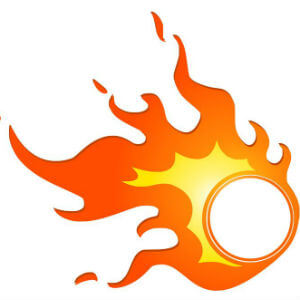You loved our first article Five Health Myths Debunked so much we just had to do it all again with these Further Five Health Myths Debunked -T ake 2
Sugar Makes Kids Hyper
Many parents believe that one slice of cake at a birthday party has the power to turn their well-behaved, polite child into a sugar monster that runs around the room screaming. Any parent who has attended a five year olds birthday party has probably heard this myth. However while it may seem like the kids are all hyper because of the sugar, science has found that this myth is simply not true.
A double-blind research study in 1994 found that a sugary diet did not affect behaviour or cognitive skills. The only thing it did change were parents’ expectations. After finding out that their children had consumed sugar, parents were more likely to say their child was hyperactive and criticize their behaviour. Even when the child was given a placebo, the parents still claimed they were hyperactive.
There are good reasons not to feed your kids sugar, but hyperactivity isn’t one of them.
You Shouldn’t Swim for an Hour After Eating.
After you eat, more blood flows to the digestive system and away from the muscles. The thinking was that if you exercised strenuously after eating, the lack of blood would cause you to cramp up and drown. This belief is not true says Beverly Hills paediatrician Scott W. Cohen, the author of Eat, Sleep, Poop: A Common Sense Guide to Your Baby’s First Year. “You might have less energy to swim vigorously, but it shouldn’t inhibit your ability to tread water or play.”
Warm Milk Will Help You Fall Asleep
Milk contains small amounts of tryptophan (the same amino acid in turkey) which when released into the brain produces serotonin—a sleep inducing neurotransmitter, “but you would have to drink gallons to get any soporific effect,” says Michael Breus, a clinical psychologist in Scottsdale, Arizona, who specializes in sleep disorders. “What is effective is a routine to help kids wind down,” he says. And if a glass of warm milk is part of the process, it can have a placebo effect, regardless of science.
High-Fructose Corn Syrup Is Worse Than Sugar
High-fructose corn syrup (HFCS) has a bad reputation. While HFCS is bad for you, compared to sugar there isn’t a huge difference in the overall impact to your health Dr. Spencer Nadolsky, medical editor at Examine.com says. “The content of both sugar and HFCS are pretty much similar. There are no significant differences between the two sugars.” High fructose corn syrup has a bad reputation because it appears often in highly processed foods. We think of them as bad because they exist in many unhealthy meal options. You won’t find many health benefits in HFCS or sugar, but you’re more likely to find sugar in nutritious options and HFCS injected into foods that don't need it. Rather than demonizing the ingredient, we should focus on the food as a whole.
The Scale Is a Good Way to Help You Manage Your Fat Loss Progress
When you go on a diet and exercise, you want proof that your efforts actually matter. Traditionally we’ve stepped on the scale to see our weight drop down and consider that progress. In reality the numerical value on the scale will mislead you. You’re made up of a lot more than just fat so losing a pound can mean progress or nothing at all. The scale treats both fat and muscle the same way, a pound of fat is the same as a pound of muscle. If you're lifting weights as part of your workout regimen, you might actually see a small amount of weight gain rather than weight loss, which is not a bad thing. A better way to measure progress is through body fat percentage, which your local fitness centre may help you with.
A version of this article appeared on realsimple.com with the headline ‘the truth about 12 health myths’.
Brought To You By Expat Choice










